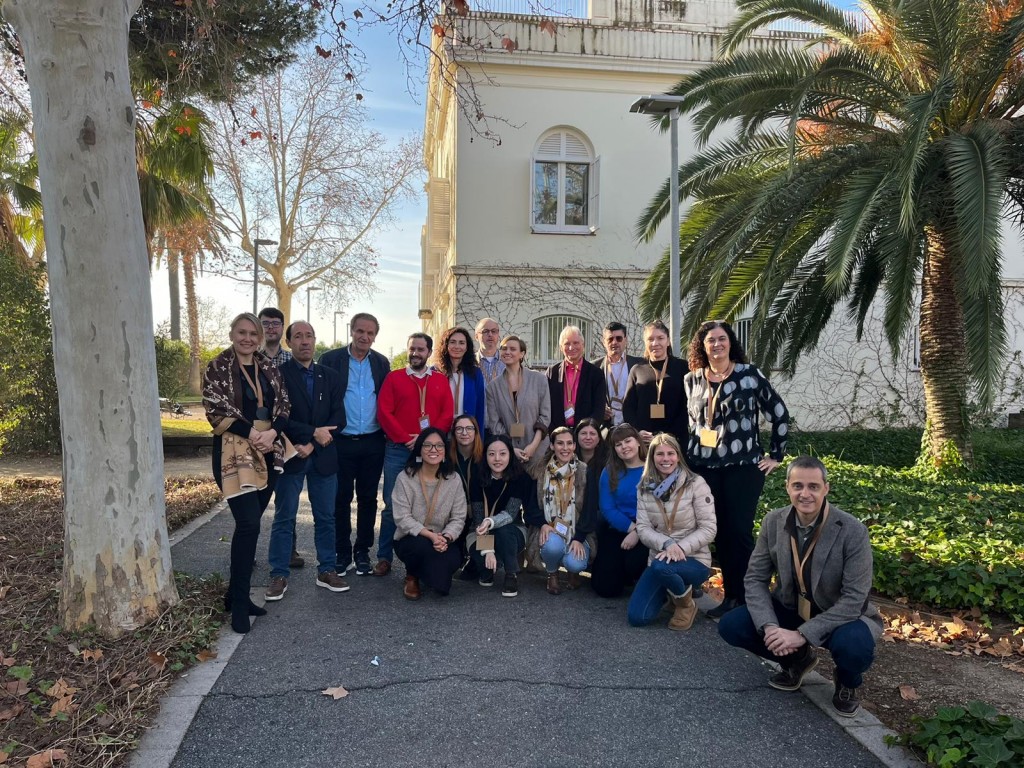
https://target-horizon.eu/news/target-project-takes-flight-a-paradigm-shift-in-atrial-fibrillation-and-stroke-management/
January 22nd, 2023 – The Horizon Europe project TARGET – Health virtual twins for the personalised management of stroke related to atrial fibrillation, kicked off today with an exciting two-days meeting in Liverpool. TARGET’s ambition is to develop novel personalised, integrated, multi-scale computational models (virtual twins) and decision support tools for the AF-related stroke (AFRS) pathway, starting from the healthy state, pathophysiology and disease onset, progression, treatment, and recovery. In this sense, TARGET represents a milestone project to improve the care and rehabilitation of patients with AF and AFRS, introducing a paradigm shift in risk prediction, diagnosis, and management of the disease, and accelerating translational research into practice.
The TARGET project, a Horizon Europe project funded under the HORIZON-HLTH-2023-TOOL-05 call – Tools and technologies for a healthy society, officially started on 1st January 2024. The multidisciplinary consortium composed of 20 partners from 10 European countries, led by Liverpool John Moores University in the UK and coordinated by the Swedish Lunds Universitet, will work for the next five years to help prevent AF and AFRS, optimise acute management and rehabilitation, reduce long-term disability, provide a better quality of life for patients and caregivers, and lower healthcare costs.
Revolutionizing Risk Assessment: TARGET’s Innovative Approach
Conventional risk assessment tools predominantly focus on static factors, often overlooking the dynamic nature of risk that evolves during acute illness, ageing, and in response to comorbidities. TARGET introduces a groundbreaking strategy by incorporating biomarkers associated with cardiac or neurologic damage, along with automated analysis of ECG characteristics, to provide a more comprehensive understanding of the underlying pathophysiology.
Recognizing the rapid changes in such biomarkers, a dynamic and personalized risk assessment approach becomes essential. This approach considers individual pathophysiological risk factors for AF and stroke, embracing a learning health system methodology for more accurate outcome predictions.
By integrating biomarkers and their dynamic fluctuations into treatment models, TARGET aims to support the development of personalized recovery plans. The ultimate goal is to mitigate disability and elevate the overall quality of life for individuals affected by AF and stroke.
Going beyond conventional practices, TARGET explores the realm of Artificial Intelligence (AI) solutions, which are increasingly gaining prominence in clinical settings. Harnessing the power of AI alongside virtual twins—digital representations of individuals based on their unique characteristics and medical histories—the aim is to elevate patient outcomes. This synergistic approach promises more accurate diagnoses, personalized treatment plans, and efficient resource allocation.
TARGET’s pioneering efforts extend to the development of novel virtual twin-based AI models. These models involve a hybrid blend of mechanistic and data-driven virtual twins, complemented by causal AI. The final objective is to bridge the gap between basic research and clinical practice, ushering in a new era of integrated multiscale healthcare solutions.
Collaboration Unleashed: Highlights from the Kick-off Meeting at LJMU
The Kick-off Meeting was an excellent opportunity for the 20 partners to meet, hosted in Liverpool by Liverpool John Moores University (LJMU), and have a common understanding of the tasks and roles of each and everyone in the project. Moreover, partners presented the work packages and milestones to achieve for the next 5 years and discussed some critical managerial and financial issues.
Read More


